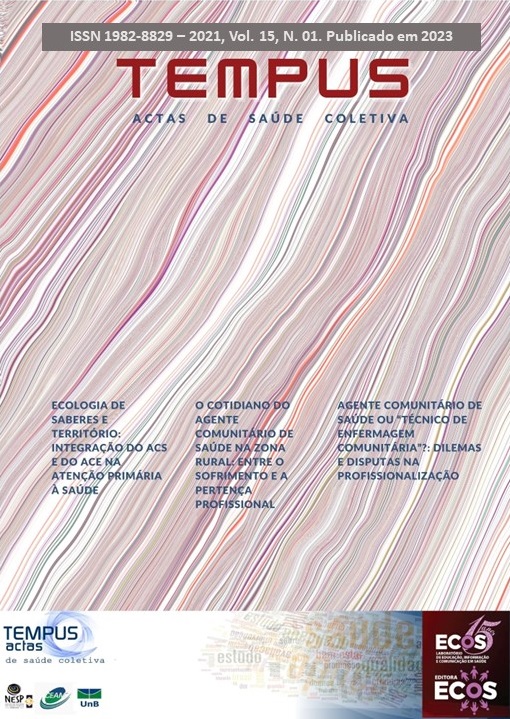Resumo
O Agente Comunitário de Saúde é considerado ator principal para capilarizar o processo de socialização das informações dos usuários e de fomento à mobilização comunitária, por residirem na área onde trabalham e possuírem vínculos ampliados com a população. Assim, devido às relações interpessoais constantes no desenvolvimento do trabalho, surgem conflitos éticos em seu cotidiano. Dessa forma, o estudo tem por objetivo conhecer os conflitos éticos que permeiam o cotidiano de trabalho do agente comunitário de saúde. Realizou-se estudo qualitativo e a coleta de dados ocorreu por meio de dois grupos focais, um com seis participantes e outro com cinco, no período de outubro a dezembro de 2016, em um município na região da Zona da Mata do estado de Minas Gerais. A análise de dados deu-se por meio da técnica de Análise de Conteúdo de Bardin. Emergiram-se quatro categorias, que relatam os conflitos éticos como desencadeadores dos processos de comunicação do agente comunitário de saúde com a equipe e a gestão, das relações com usuários, dos papéis assumidos e da postura profissional desses com a equipe. Ademais, evidencia-se que é necessário formular estratégias a fim de valorizar o agente comunitário de saúde como membro da equipe, além de criar espaços de debates sobre o cotidiano e os conflitos éticos vivenciados, para que haja uma melhor qualidade de vida desses trabalhadores e, consequentemente da saúde a ser ofertada à comunidade.
A Tempus garante critérios rigorosos, por meio de avaliação sistemática. Os autores se responsabilizam pela veracidade e ineditismo do trabalho cabendo a eles a cessão de direitos de publicação à revista. A confiabilidade dos conteúdos e a marca própria de apresentação tem como objetivo uma comunicação personalizada, adaptada aos padrões da revista, na medida em que adota critérios de excelência exigidos por seus usuários e especialistas, considerando os rigores da comunicação científica. Os autores devem especificar sua contribuição individual na concepção, delineamento, execução do trabalho, análise ou interpretação dos dados, redação e aprovação final do manuscrito. Incluir Fontes de financiamento e de apoio logístico das pesquisas. Ao final da submissão do artigo, os autores devem enviar uma declaração de cessão de direitos de publicação à Revista TEMPUS , assinada e no formato PDF (Portable Document Format ): Modelo da declaração de cessão de direitos.
